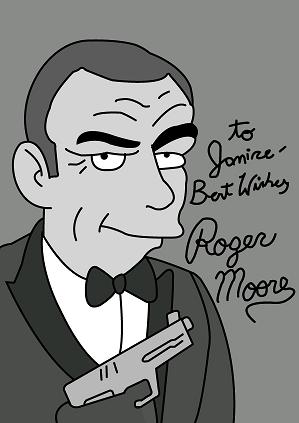Like everyone else, I've had fights with my mom. But I've never had
one like this:
If anyone was wondering where French avant-garde novelist Michel Houellebecq got his talent for character assassination, the answer is clear: his mother.
In his seminal 1998 novel "Les particules elementaires," known in English as "Atomised," Houellebecq vented a lifetime of anger against his mother by portraying her as an egocentric, sexually promiscuous hippie who neglected her children.
Now it's pay-back time.
Lucie Ceccaldi, 83, has returned to France from her home in the Indian Ocean island of Reunion to publish a book of her own, "The Innocent One," in which she heaps insults on her son.
"My son can go and get screwed by whomever he wants, he can write another book, I don't give a toss," she says in one excerpt, widely published in French media on Wednesday.
"But if he has the misfortune of sticking my name on anything again he'll get my walking stick in his face and that'll knock his teeth out," she says in what newspapers described as a typical sample.
They really sound like some charming people.
He has always been very open about his grievances against his mother, who he says lost interest in him shortly after he was born in 1958 and left him in the care of his grandmother when he was a small boy.
Mother and son have been estranged since 1991, when a row over the Gulf War was the last in a long list of arguments.
"I knew I would never see my mother again and I was trembling with joy ... I really felt that I was experiencing a great moment -- full of light, liberating, peaceful," he has said of that final showdown.
In one subsequent interview with French arts magazine Les Inrockuptibles, he said his mother was dead.
Well, I guess he was mistaken.
"Michel and I can start talking again when he goes out in public with his 'Atomised' in hand and says 'I'm a liar, I'm an impostor, I've been a parasite, I've never done anything with my life except hurt those around me. And I'm sorry,'" she writes.
Houellebecq has given no public response.
Ceccaldi's account of his childhood does not contradict his version of events, but the interpretation is very different.
According to her book, she viewed him as a hindrance to her travel plans and active love life when he was a baby and later left him with his paternal grandmother for his own good.
Well, then, I guess he really has no reason to be upset with her. I mean, if my mom decided I was a burden and ditched me to go globetrotting and screwing around...uh...well, yeah, I guess I might be just a tad resentful, too




No comments:
Post a Comment